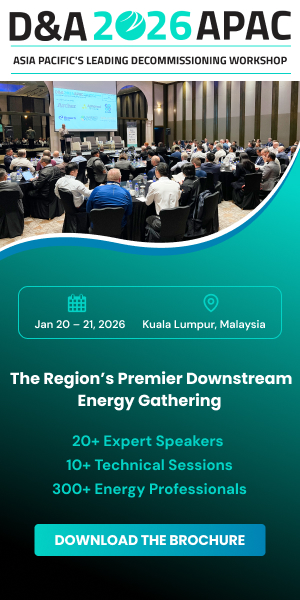The long-term survival of the oil and gas industry hinges on how quickly companies adopt new technologies, such as well intervention. These technologies can help lower costs, and protect companies from the volatility of oil prices
In a podcast titled, 'How to successfully implement new well intervention technology with Saudi Aramco,' moderated by Roberto Estaba, commercial leader for integrated services solutions at Baker Hughes GE, three experts from the industry discussed technology deployment, funding, tendering time and TOTEX.
When asked about the major challenges faced by service providers trying to implement new technology for well intervention and how can operators help, the panellists said bringing new technology into the market, and deploying it, has been an uphill task.
Paul Stein, production enhancement solutions leader at Baker Hughes, has underscored the importance of collaboration between service providers and operators to work effectively.
Further, the need for funding and field-testing for new well technology continue to be areas of concern for the industry.
Ian Ayling, vice-president of global offshore accounts, NOV, said, "One of our approaches is trying to make a purposeful innovation and making sure that technology we develop meets the need. As a result, it gets a better chance to be deployed."
Working with potential engineers and getting access to field trials to accelerate the testing and qualification process are crucial, he added.
He added that only by adopting new practices and embracing novel technology, the industry could become more competitive, efficient and cleaner.
"Probably, everybody is a bit more open to trying the new technology because as an industry we recognised that things have to be done differently. By doing in the same old way, we aren't able to meet all those metrics," he said.
Mohammad Rehan, senior contracts and procurement adviser, Saudi Aramco, said, "At this market situation, there is at least one sector of the oil and gas industry holding steady. Well intervention business, as anticipated, will witness an uptick that could sustain for upcoming two to three years."
"As [far as the] operators’ point of view is concerned, we are more focused towards maintaining wells and keeping the production as economical as possible. We particularly focus on less downtime and steady performance following an efficient and effective programme. We need to work in collaboration with our providers. We expect in this period to stay relatively steady for intervention services, but in some places, we actually expect an uplift to mitigate the decline in the rig activity."
The trend towards new tools and technologies pushing well interventions to new levels has been mirrored in the coil tubing sector. Coil tubing has benefited from increased diameters, better welding technology and new metallurgy to increase strength. These improvements make it an important tool for a variety of functions. Mohammed commented that well intervention represents around 70 per cent of the coil tubing market.
Minimum tendering time
Commenting on the major requirements that operators need from service providers to ensure minimum tendering time, Mohammad said, "As far as the tendering cycle is concerned, the scope of work should be well-drafted and conveyed clearly to the supplier. Also, global framework agreements reduce tendering time."
He added, "For the mutual benefit of the operators and service providers, the communication channels should be kept open, bring out tender bulletins and organise pre-bid meetings."
Advantage TOTEX
When asked how the increasing use of TOTEX (CAPEX+OPEX) evaluation during procurement enables the uptake of new technology adoption, Mohammad, said, "We shouldn't be more concerned with heavy investments when we have justifications backing up with reliability and durability. The only focus should be how much value it adds to product and how efficient it will make the process, saving time and energy."
The panel agreed that communication, collaboration, and setting long-term goals are crucial for the industry to prosper.








